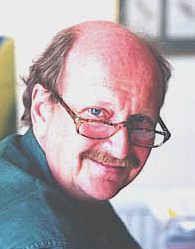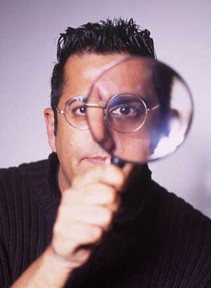Lavely
 |
 |
The Times published a letter from Edzard Ernst and Simon Singh on April 16th. In their forthcoming book, Trick or Treatment? Alternative Medicine on Trial, they go carefully through all the evidence for all sorts of ‘alternative’ treatments. They find some evidence that a handful of them work. For most the answer is ‘not enough evidence’, and for a number there is good evidence that many of them don’t work to any useful extent.
“Sir, For over two decades the Prince of Wales has been actively promoting alternative medicine and his Foundation for Integrated Health continues to encourage the use of treatments such as homoeopathy or reflexology.””In light of this “rigorous scientific evidence”, we strongly advise that the Prince of Wales and the Foundation for Integrated Health withdraw the publications Complementary Health Care: A Guide for Patients and the Smallwood report. They both contain numerous misleading and inaccurate claims concerning the supposed benefits of alternative medicine. The nation cannot be served by promoting ineffective and sometimes dangerous alternative treatments.”
Thank heavens that someone has the courage to say it as it is.
If only the ineffectual and ill-educated people in the Department of Health wouold do the same. But no, instead they gave £37 000 to the Prince of Wales Foundation to write their make-believe guides. And £900 000 to write nonsense for the Complementary and Natural Healthcare Council (also known as Ofquack), and Skills for Health,
The next day The Times ran an article by their science editor, Mark Henderson, Prince of Wales’s guide to alternative medicine ‘inaccurate’. Natasha Finlayson, of the Prince’s Foundation for Integrated Health, is quoted as saying “The foundation does not promote complementary therapies.”. That takes some beating for sheer bare-faced dishonesty.
Edzard Ernst appeared on the Today Program on 18th April. He was interveiwed by the formidable John Humphrys, along with Kim Lavely, Chief Executive, The Prince’s Foundation for Integrated Health (FIH). Ernst points out that the FIH guide suggests that chiropractic is effective in asthma, and that acupuncture is good for addiction, whereas the evidence says the opposite. Lavely retorts, rather lamely (OK I’m biassed).
Lavely: ” . . . we didn’t attempt to give detailed evidence on every therapy”. “We think they [the public] have the right to know and what doesn’t”
Humphrys: “Well isn’t that the whole point? the professor is saying here is that these things do not work, at least in terms of the claims that are made for them, such as homeopathy and chiropractic . . . ”
Lavely: “There are no claims made in this guide for what works and what doesn’t. What we have said is that some therapies are used for some things but we aren’t saying they are effective for those things . . . “
So, one might ask, what on earth is the use of a guide is it that offers no indication of effectiveness? Lavely’s second quotation contradicts directly her first. A pretty pathetic performance.
Listen to the interview [mp3 file]
The Sunday Times, on April 20th, pblished a pretty good review of Trick of Treatment?. “Their case against the folly, vanity and damage of HRH et al. is hard to argue with.”
Of course, the letters column drew the expected response from the quacks, most verging on the hilarious.
Another blow for the alternative industry came in the same week, The authoratitve Cochrane review confirmed earlier reports that vitamin supplements not only do not help you but some actually increase mortality. The antioxidant myth nevertheless rumbles on, and on, and on. There is too much money in it for it to die easily.
Predictably enough, the conclusions were denied by the Health Food Manufacturers’ Association (HFMA). They wheeled out several pop singers to say how wonderful their products are. Read about that pathetic defence on Holfordwatch.
Who is behind HFMA? Incidentally, HFMA are strangely reticent about the identity of their 120 members. They will not reveal who they are. Does anybody out there know the answer? I’ll buy a good dinner for anyone who can root this out. If it is anything like the ‘Health Supplements Information Service‘ it is likely to be backedby the very big pharmaceutical companies that the alternative industry loves to hate.
Take the test
Prince of Wales Guide
“Reflexologists work with a wide range of conditions including certain types of pain, particularly back and neck pain, migraine and headaches, chronic fatigue, sinusitis, arthritis, insomnia, digestive problems such as irritable bowel syndrome, and constipation, stress-related disorders and menopausal symptoms.”
Singh & Ernst
“The notion that reflexology can be used to diagnose health problems has been disproved and there is no convincing evidence that it is effective for any condition.”
